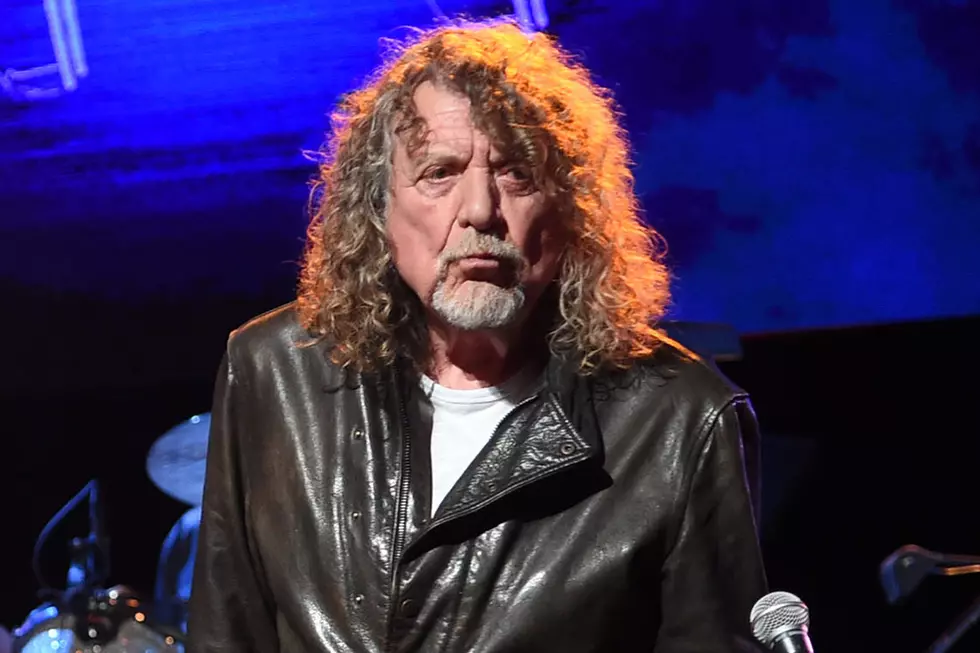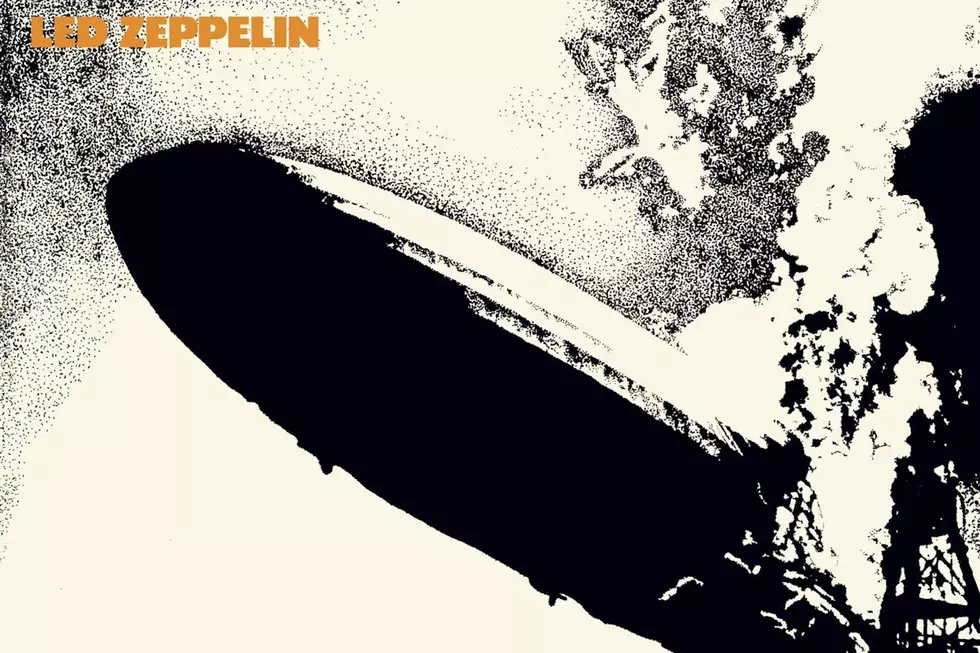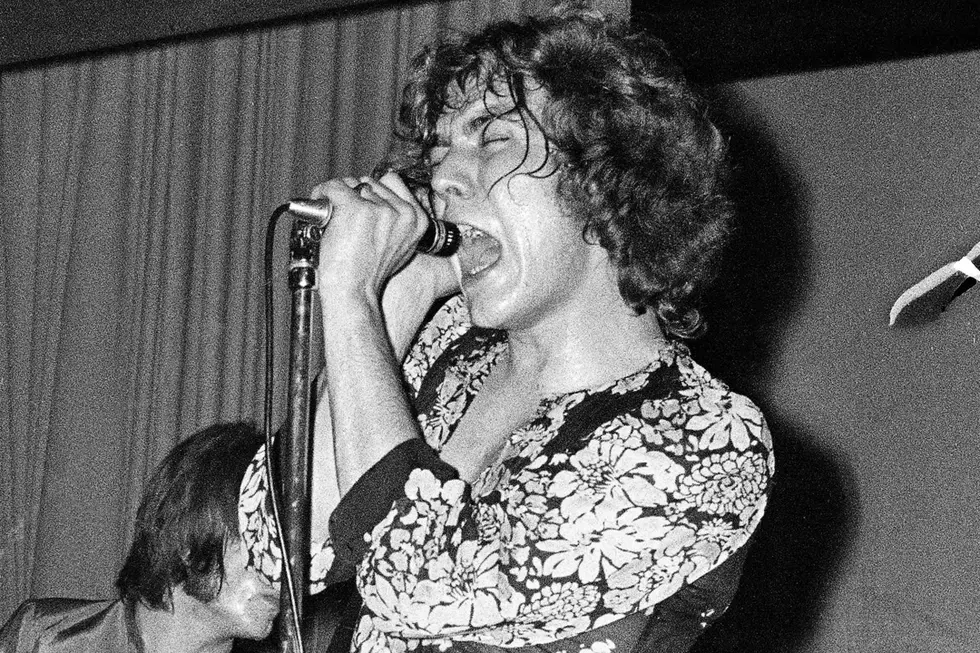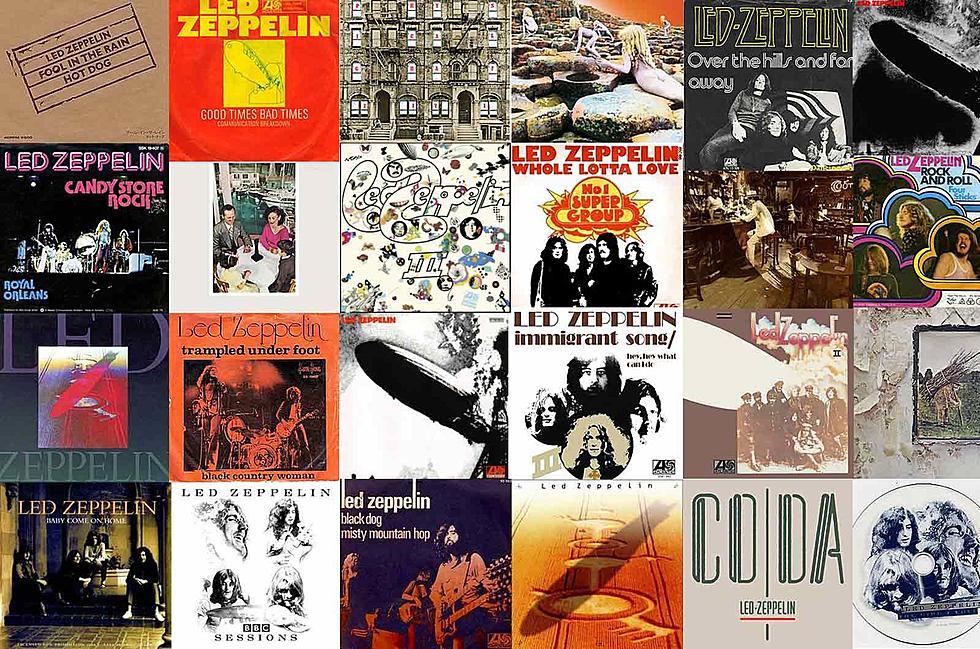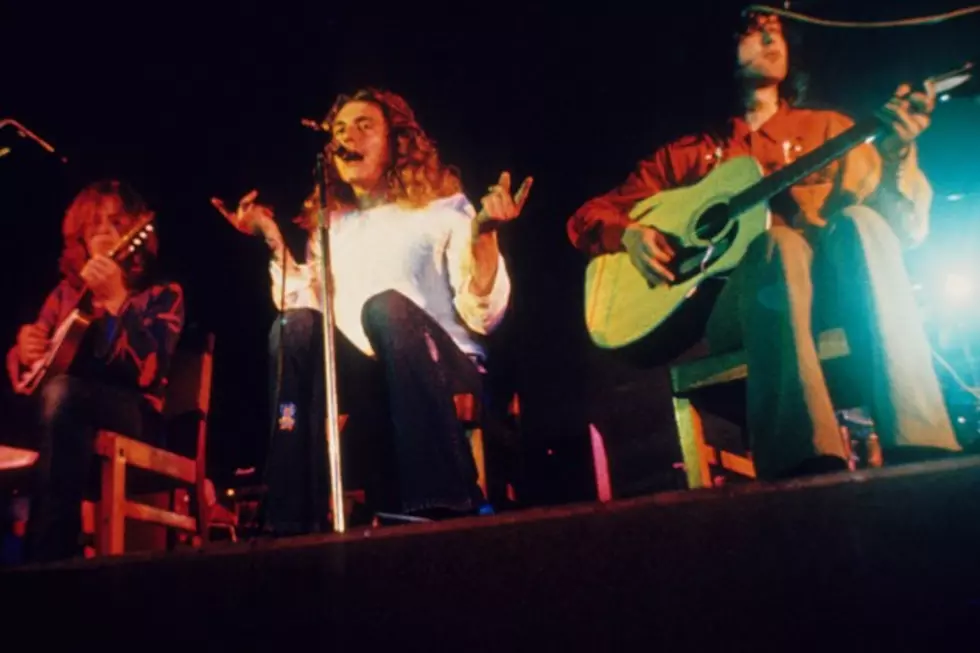
Top 10 Led Zeppelin Acoustic Songs
For all the banter over whether they did or didn’t create metal, our list of Top 10 Led Zeppelin Acoustic Songs shows how adept the band was at mixing in more subdued elements. Though drawing the unrelenting ire of critics back then, Led Zeppelin could never be called one-dimensional with any seriousness. Guitarist Jimmy Page simply had too much of a propensity for adding different textures to the band’s songs, something that kept Led Zeppelin as far from being pigeonholed as possible. Still, tracks like the jaunty “Rock and Roll,” the boldly orchestral “Kashmir” and the blistering “Whole Lotta Love” more often blasted from passing car radios, and certainly get the majority mainstream radio play to this day. So, let's take some time to dig a bit deeper in this Top 10 Led Zeppelin Acoustic Songs.
- 10
"Hey, Hey What Can I Do"
From: B-Side of "Immigrant Song" Single (1970)One of the aspects that made “Hey, Hey What Can I Do” so alluring is the fact that for two decades the song was so damn hard to get. Released as the flip side to the “Immigrant Song” 45 in 1970, and then on a random 1972 Atlantic Records sampler, it wouldn’t be available on CD or cassette until 1990, when the Zeppelin four-disc box set was released. Thematically, it’s a preview to “Going to California” (found later on our list of Top 10 Led Zeppelin Acoustic Songs), as frontman Robert Plant is having no luck with his lady. She works at a bar on the midnight shift and gets followed around by dudes all day, doesn’t go to church, is drunk all the time and wants to “ball all day.” So he packs up and moves away while his bandmates provide the soundtrack (check out John Paul Jones, who handles mandolin and acoustic guitar in addition to his usual bass duties).
- 9
"The Battle of Evermore"
From: ‘Led Zeppelin IV’ (1971)The artists who have performed on albums in the Led Zeppelin catalog other than Page, Plant, Jones and drummer John Bonham can be counted on two fingers. Pianist and Rolling Stones co-founder Ian Stewart is credited on a pair of tracks (from Physical Graffiti), while Fairport Convention singer Sandy Denny provides the perfect foil to Plant, who once again goes off on another one of his Lord of the Rings-inspired lyrical tangents. Denny, who even got her own symbol on the record, had her parts performed in concert by John Paul Jones, most notably on Led Zeppelin’s abbreviated 1977 tour.
- 8
"Poor Tom"
From: ‘Coda’ (1982)This tells the story of Tom, a man saddled with being the seventh son of a seventh son. That gives him a second sight, which unfortunately leads to him discovering the cheating ways of his wife Annie Mae. He shoots her dead, and is then sentenced to the same fate himself. More of a skiffle and shuffle than anything else the band recorded – thank John Bonham for that – the song never found a place on a proper Zeppelin record until the outtakes collection Coda. “Poor Tom,” indeed.
- 7
"Friends"
From: ‘Led Zeppelin III’ (1970)This song certainly didn’t help the accusations that the band was trying to copy Crosby, Stills, Nash and Young on III. Plant shows surprising range here, proving his caterwaul could be just as useful to the band's acoustic side. Hardcore fans were pretty dismayed when the expanded edition of Led Zeppelin III came out and didn’t include the heavily bootlegged version of “Friends,” along with “Four Sticks,” which Page and Plant recorded with the Bombay Orchestra on a trip to India in 1972. Turns out Page was just holding off, including them instead on a companion disc to Coda's expanded release.
- 6
"Bron-Yr-Aur"
From: ‘Physical Graffiti' (1975)At a little more than two minutes long, this is the shortest track in the Zeppelin canon, but by far one of the most beautiful. Jimmy Page’s stark acoustic playing, warts and all, is the perfect track to put on for a loggerhead who considers the group nothing more than bloated, '70s cock-rock. It also provides the soundtrack to the sequence toward the beginning of the 1976 concert film The Song Remains the Same where the band travels by limousine from the airport into the heart of New York City for shows at Madison Square Garden – a period that, coincidentally enough, featured plenty of bloated, 70s cock-rock.
- 5
"Going to California"
From: ‘Led Zeppelin IV’ (1971)"Going to California" doesn't include Robert Plant's most advanced songwriting, which just might be why it resonated so deeply with the masses. It’s a basic tale of longing for a better situation and, crucially, isn’t peppered with the singer’s penchant for overt references to J.R.R. Tolkien stories about hobbits. During live performances of the song, Plant would often drop not-so-thinly veiled references about Joni Mitchell, whom he was supposedly infatuated with – and add an addendum to the line, “Telling myself it's not as hard, hard, hard as it seems,” waiting five beats or so before lamenting, “It’s hard.”
- 4
"Gallows Pole"
From: ‘Led Zeppelin III’ (1970)Hands down one of the darkest songs in the Led Zeppelin catalog, the traditional "Gallows Pole" tells the old story of man trying to avoid being hanged, imploring the hangman to wait until his family shows up with the wares necessary to stave off execution. Despite receiving some gold and silver provided by his brother, and some old-fashioned lovin’ from his sister, the hangman still carries out the task at hand. The way the song builds from a simple acoustic melody to a frenetic back and forth with banjo, mandolin and electric guitar, with Plant becoming more and more desperate, is storytelling at its finest.
- 3
"Black Country Woman"
From: ‘Physical Graffiti' (1975)"Black Country Woman" is an encapsulation of the Delta blues that inspired Jimmy Page and Robert Plant. You can almost picture the band sitting on a front porch somewhere in the deep south hashing out the track. That might be the main reason why they wanted to record it outside, at the Stargroves estate in South East England’s Hampshire. It’s got a loose, outdoorsy feel to it, complete with the sound of airplane flying overhead at the beginning, which Plant, who plays some solid harmonica on the track, casually told engineer Eddie Kramer to leave in.
- 2
"That’s the Way"
From: ‘Led Zeppelin III’ (1970)Arguably the finest track to come out of the Bron-Yr-Aur sessions, and inspired by the surrounding lush landscape, “That’s the Way” was written in a short amount of time by Page and Plant, and showed that even at their most elementary the group could have an impact. The lyrics are said to be about such wide-ranging topics as the environment and the hassles the band members would face by the less progressive areas of America because of their looks.
- 1
"Babe I’m Gonna Leave You"
From: ‘Led Zeppelin’ (1968)A fascinating piece of history, the No. 1 song on our list of Top 10 Led Zeppelin Acoustic Songs was one of the first Jimmy Page and Robert Plant worked on together. As the second track on the first album, following the explosive “Good Times, Bad Times,” it immediately quiets things down. But it’s not long before Plant shrieks, the instruments flare up and it becomes the earliest embodiment of what Page would later note as his goal of having “lots of light and shade in the music.” To wield so much power in a song that is primarily acoustic without it becoming cumbersome is a testament to how much talent Zep possessed and the promising future that lay ahead.
- BONUS
See Led Zeppelin and Other Rockers in the Top 100 Albums of the '70s
[gallery galleryid="295:228917" showthumbs="yes" enablefullscreen="yes" inititem="14"]
More From Ultimate Classic Rock

